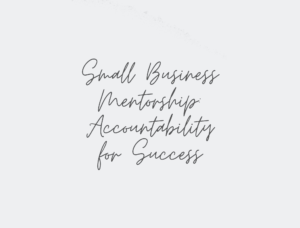Introduction
Continuous skill development is crucial in today’s fast-paced environment. As industries and technologies change, personal and professional success requires adaptability and growth. Learn new skills or improve old ones to unlock one’s full potential.
People can change their lives by actively developing skills. This journey helps with career and personal growth and improves relationships through communication and empathy. Let’s explore how skill development may transform your life and propel you forward.
Read more about Mentorship.
What is Skill Development?
Skill development entails learning or improving skills. Continuous learning helps people adapt to changing settings and personal and professional obstacles.
Types of Skills
Hard skills and soft skills are the two main types of skills.
Hard skills, also called technical skills, are specific abilities that can be taught and tested. Examples include coding, analyzing data, and speaking a foreign language fluently.
Soft skills, also called interpersonal skills, are more general and involve how you get along with other people. These include talking to people, working with others, solving problems, and understanding how others feel.
Importance
Skill development is important for many reasons. It enhances self-confidence, mental agility, and lifetime learning. Professionally, it boosts employability, job prospects, and promotions and income rises. Continuously strengthening hard and soft skills leads to well-rounded growth that benefits all areas of life.
Benefits of Skill Development
- Career Advancement: Learning new skills can make your work more likely to lead to promotions and job openings.
- Increased Employability: Getting skills in high demand makes you more appealing to companies, which increases your chances of getting the jobs you want.
- Enhanced Self-confidence: Getting better at something makes you feel better about your abilities and gives you the confidence to try new things.
- Mental Agility: Learning new things keeps your mind active and sharp, which helps you stay creative and quick on your feet.
- Better Relationships: Better communication and empathy skills make relationships stronger and more important in personal and professional settings.
- Greater Adaptability: Being good at many things makes dealing with new situations and problems easier, which is important for long-term success and resilience.
How to Identify Skills to Develop
Self-assessment
The first stage in skill development is to evaluate your present talents and identify deficiencies. SWOT analysis (assessing strengths, weaknesses, opportunities, and threats) can determine your position. Also, peer and mentor evaluation might reveal your strengths and weaknesses. This other perspective can reveal skills you may have overlooked and suggest ways to improve them.
Setting Goals
SMART goals are essential after identifying talents to grow. SMART goals are measurable, achievable, relevant, and time-bound. Instead of “I want to improve my coding skills,” a SMART goal is “I will complete an online Python course and build a small project within three months.” These goals should match your personal and career goals to ensure your success. Clear, realistic goals stimulate and focus, making skill development more effective and satisfying.
Methods of Skill Development
Formal Education
Degrees, certifications, and formal training programs provide structured learning and recognized credentials that can boost your career. This curriculum offers in-depth knowledge, skilled training, and a thorough understanding of specialized subjects. Coursera, edX, and Udemy make formal education more accessible by letting you learn from renowned schools and professionals at your speed.
Informal Learning
Hobby, volunteer, and practical learning are other great ways to build skills. Activities outside your work can reveal latent talents and interests. In this setting, mentorship and networking are invaluable. Mentors assist you in overcoming obstacles, while networking opens new chances and resources, increasing your learning.
Self-directed Learning
Learning alone lets you control your education. Use books, podcasts, and internet resources to customize your study. Keeping a learning timetable encourages continuous progress. Independence and self-motivation are essential for lifelong learning and personal improvement. Combining these strategies allows you to construct a comprehensive skill development plan that meets your needs.
Overcoming Challenges in Skill Development
Common Obstacles
Learning new talents is difficult. Time management is a major issue. Balancing skill development with work, family, and personal obligations might be difficult. Due to cost restrictions, many may find high-quality learning resources and activities out of reach.
Solutions and Tips
To get past these problems, you need to be able to organize your time and set priorities well. Look at these strategies:
- Create a Schedule: Set aside specific times each day or week to learn. These times are plans with yourself that you can’t change.
- Set Priorities: Determine which skills you need to improve the most and work on them first. This will help you make the most of your time.
- Break It Down: Break up your learning goals into smaller, manageable tasks. This will make the process less stressful and allow things to move along more slowly.
If you don’t have a lot of money, think about the following free and cheap resources:
- Online Platforms: Coursera, edX, Khan Academy, and LinkedIn Learning offer many free and cheap lessons.
- Libraries: You can get free books and other educational materials at your neighborhood library.
- Open Source: To learn technical skills and investigate open-source apps and community-based tools.
Persistence and a growth mentality are crucial. Skills development takes dedication and resilience. Use obstacles to learn and grow, and be cheerful even when progress is sluggish. You may overcome challenges and attain skill development goals by being committed and adaptable.
Conclusion
Skill development transforms many elements of life. Skill development and refining can lead to new opportunities and major life changes, whether for jobs, personal growth, or relationships. You can reach your maximum potential by understanding abilities, their benefits, areas for progress, and challenges.
You can improve your life by taking the first step toward skill development today.





